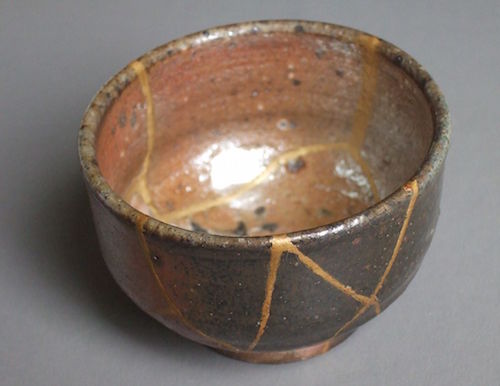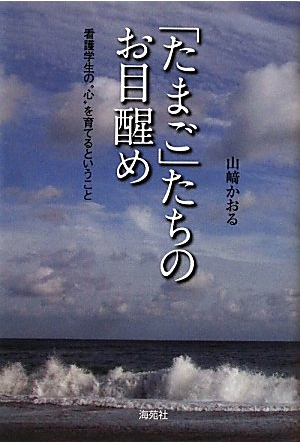In the Beginning
In the beginning you were an egg. Well, anatomically, that's not quite right. You were an egg plus a sperm (if I may speak in such a familiar way about something going on inside your mother). But in the beginning of your professional life, you were just an egg. That's what I learned from this book cover, included in the forthcoming essay 2041 on 醒 (to awaken):
The title could win an award for "Most Confusing":
「『たまご』たちのお目醒め 看護学生の“心”を育てるということ」
Awakening Professionals-to-Be: Training the Minds of Student Nurses
-たち (pluralizing suffix); 目醒め (めざめ: awakening); 看護学生 (かんごがくせい: student nurse); 心 (こころ: mind); 育てる (そだてる: to train, educate)
I thought the title might be about eggs that stand and wake up, but no! The Japanese use たまご (卵: egg) figuratively for a person who is training to become a professional. In this case, たまご refers to students at the school where the author teaches nurses-to-be. Similarly, the Japanese use this phrase:
医者の卵 (いしゃのたまご: a doctor in the making; a future doctor)
It's kind of reassuring to know that we all start as eggs. In a way, it's equalizing!
Speaking of beginnings, I've had a few good discussions lately about sibling rivalry and whether it exists in the same way in Japan as in the West. (The conclusion we leaned toward is that although siblings fight everywhere—even in the puppy world!—competition in Japan between brothers and sisters may not be nearly as intense as in the West.) In the process, I learned the following saying:
兄弟は他人の始まり。
Being siblings is the beginning of becoming strangers.
兄弟 (きょうだい: sibling); 他人 (たにん: stranger,
outsider); 始まり (はじまり: beginning)
The saying came with this explanation from a native speaker: Even if siblings are close as kids, they tend to drift apart when each starts a family and loyalty shifts to spouses, children, grandchildren, and so on. The siblings may no longer fight, but they don’t care for one another anymore. What's more, she says, their children and grandchildren will definitely be strangers. This isn't necessarily her opinion, just the idea behind the saying.
Wow, that's a very honest portrayal of what life can be like! And it matches what I once read in a review of an American film, which is that it's as if adult siblings survived the same car wreck and have nothing in common but that disaster.
I certainly like when people cut through the crap. That's why I took special pleasure this week when my proofreader disabused me of a certain illusion. And it's not just my illusion. Rather, it's one that seems to have spread like crazy throughout Facebook. Many well-intentioned people have posted a photo of pottery that broke and was mended in Japan with a golden seam—something like this:

Photo Credit: Haragayato
The process is known as follows:
金継ぎ (きんつぎ: repairing pottery with a lacquer covered with powder made of gold)
The memes containing such an image say not only that the Japanese repair pottery with gold but also that this restoration is a metaphor for how, once we have been "broken" by traumas, we can come back stronger, more beautiful, and more resilient.
I wonder how many people realize that this doesn't match reality in Japan. My proofreader tells me that most people today prefer throwing away broken pottery and buying new items. Moreover, he says, no one extracts an inspirational meaning from the mending method, which has, by the way, become quite uncommon.
He tried to recall the closest sentiment and came up with this saying:
雨降って地固まる
Earth solidifies after rain.
雨 (あめ: rain); 降る (ふる: to fall);
地 (じ: earth); 固まる (かたまる: to solidify)
That doesn't sound terribly profound or promising, but people use this expression to assert that relationships can improve after rifts.
So remember: not only do we all start as eggs but we can also take solace in the way mud hardens! Maybe life isn't as complicated as it seems!
I haven't had a chance to tell you about the most recent essay, so I'm grabbing this opportunity. Here's a sneak preview:
Catch you back here next time!
❖❖❖
Did you like this post? Express your love by supporting Joy o' Kanji on Patreon:




Comments